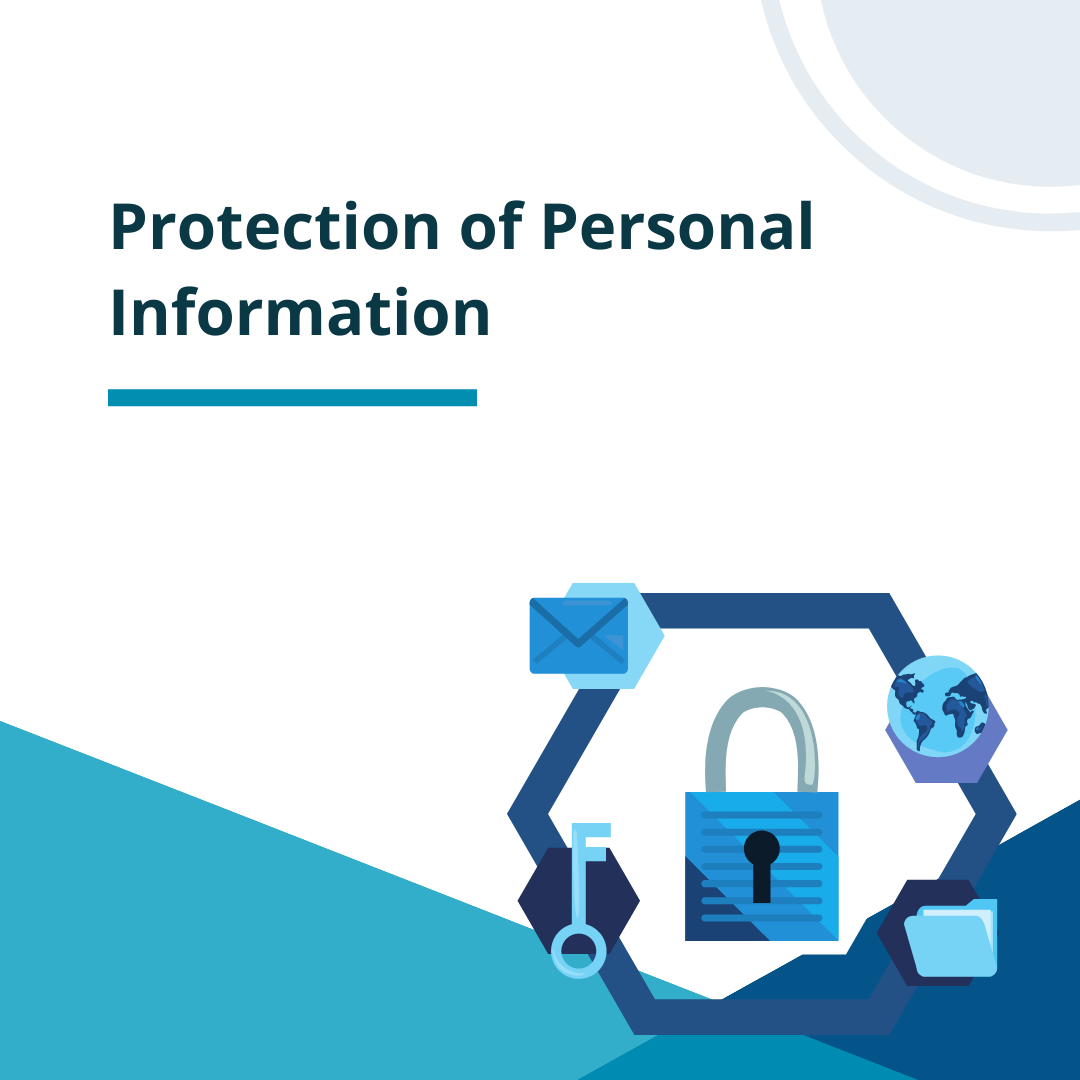Demystifying the POPI Act: Understanding South Africa's Approach to Processing Personal Information
Introduction to the POPI Act
The Protection of Personal Information Act, often referred to as the POPI Act, is South Africa's solution to the global call for stricter data privacy regulations. As the digital age continues to advance, the need to protect personal information has become increasingly important. The POPI Act is South Africa's answer to this pressing matter, comprehensive legislation designed to safeguard individuals' personal data.
The POPI Act is not a new concept in the world of data privacy. Many countries have implemented similar laws, following the increasing demand for better data protection measures. However, the uniqueness of the POPI Act lies in its context-specific approach to data privacy, considering the unique socio-economic and political landscape of South Africa.
In essence, the POPI Act aims to promote the rights of South African citizens to privacy by setting specific conditions under which their personal data can be processed. It does this by defining clear roles and responsibilities for those handling personal data, referred to as 'responsible parties,' and those whose data is being processed, known as 'data subjects.'
Understanding the purpose of the POPI Act
The primary aim of the POPI Act is to protect the privacy of individuals and entities by establishing a comprehensive framework for the lawful processing of personal information. The Act ensures that personal data is handled responsibly and with integrity, thereby fostering trust between data subjects and responsible parties.
The POPI Act is designed to strike a balance between the rights of individuals to privacy and the need for businesses to process personal data for legitimate purposes. It recognises that in our digital age, the processing of personal data is inevitable and crucial for businesses to operate and deliver their services effectively.
Furthermore, the POPI Act is aimed at aligning South Africa's data protection laws with international standards. Doing so enhances the country's reputation as a safe place to do business, attracting more foreign investment. It also ensures that South African businesses can continue to trade with countries with strict data protection laws, such as those in the European Union.
The key principles of the POPI Act
The POPI Act is built on eight key principles that guide the lawful processing of personal information. These principles, much like the pillars of a building, form the foundation of the Act and provide a clear framework for responsible parties to adhere to.
The first principle, accountability, stipulates that the responsible party is obliged to comply with the provisions of the POPI Act. This means that they must ensure the proper handling of personal data, from collection to destruction.
The second principle, processing limitation, requires that personal data be processed lawfully and reasonably, without infringing upon the privacy of the data subject.
The third principle, purpose specification, mandates that personal data should only be collected for a specific, explicitly defined, and lawful purpose related to a function or activity of the responsible party.
The fourth principle, further processing limitation, states that the further processing of personal data must be in line or compatible with the purpose for which it was initially collected.
The fifth principle, information quality, requires that the personal data collected and processed must be complete, accurate, not misleading, and updated when necessary.
The sixth principle, openness, necessitates that the data subject must be aware that their personal data is being collected and the specific purpose for which it is being collected.
The seventh principle, security safeguards, obliges the responsible party to secure the integrity and confidentiality of personal data by implementing appropriate, reasonable, technical, and organisational measures.
The eighth and final principle, data subject participation, allows the data subject to request, at any time, whether the responsible party holds their personal data and what information they hold. They also have the right to request the correction, deletion, or destruction of their personal data.
How the POPI Act compares to the EU GDPR
Drawing parallels between the POPI Act and the European Union's General Data Protection Regulation (GDPR) is inevitable. Both regulations aim to protect personal information and ensure its lawful processing. However, there are subtle differences between the two that are worth noting.
One of the primary differences lies in the scope of the application. The GDPR applies to all EU member states, ensuring a uniform data protection law across the continent. On the other hand, the POPI Act is specific to South Africa, considering the country's unique context.
Another key difference is in the enforcement mechanisms. The GDPR is known for its hefty fines, which can go up to 20 million Euros or 4% of the company's global annual turnover of the preceding financial year, whichever is higher. The POPI Act, however, caps its administrative fines at R10 million (approximately 600,000 Euros).
Despite these differences, the POPI Act and the GDPR share many similarities. Both regulations uphold the principle of accountability, require the lawful processing of personal data, and grant rights to data subjects. Moreover, both regulations acknowledge the significance of data protection in today's digital age, thereby fostering trust and confidence in digital interactions.
The role and responsibilities of 'responsible parties' under the POPI Act
The POPI Act introduces the term 'responsible parties,' referring to public or private bodies or any other persons who, alone or in conjunction with others, determine the purpose of and means for processing personal information. In essence, a responsible party is anyone who decides why and how personal data should be processed.
The Act sets out clear responsibilities for these 'responsible parties.' They are required to ensure that personal data is processed in accordance with the eight principles of the POPI Act. This includes ensuring that data is collected for a specific purpose, processed lawfully and reasonably, and kept secure and confidential.
Responsible parties are also obligated to respect the rights of data subjects. This includes providing them with information about the processing of their personal data, as well as respecting their rights to access, correct, or delete their personal data. In addition, responsible parties must notify the Information Regulator and the data subject in case of any data breaches that may have adverse effects on the personal information of the data subject.
Understanding 'data subjects' in the context of the POPI Act
In the context of the POPI Act, 'data subjects' refer to the individuals or entities whose personal information is being processed. This could be anyone from a customer or employee to a supplier or business partner. It also extends to both natural and juristic persons, meaning it includes individuals as well as companies or other legal entities.
Data subjects play a crucial role in the data processing cycle. They have the right to be informed about the collection and processing of their personal data, access and correct their data, and object to the processing of their data.
Moreover, data subjects are entitled to protection against any harm resulting from the unlawful processing of their personal data. This includes the right to lodge a complaint with the Information Regulator and to institute civil proceedings regarding the alleged interference with the protection of their personal data.
Steps for lawful processing of personal information under the POPI Act
The POPI Act provides a clear roadmap for the lawful processing of personal data. This process begins with ensuring that the data subject is aware of the purpose for which their data is being collected. The responsible party must then ensure that the data is collected directly from the data subject unless the information is contained in a public record or has deliberately been made public by the data subject.
Once the data has been collected, the responsible party must ensure that it is complete, accurate, not misleading, and updated when necessary. Additionally, the responsible party must safeguard the data against loss, damage, unauthorised destruction, unlawful access, or processing.
Lastly, the responsible party must not retain the records any longer than is necessary to achieve the purpose for which the information was collected and processed unless required by law. Once the purpose has been achieved, the data must be destroyed, deleted, or de-identified as soon as reasonably practicable.
The Implications of the POPI Act for South African Businesses
The POPI Act has several implications for South African businesses.
Firstly, it requires businesses to review their data processing activities and ensure they are in line with the Act's principles. This may involve implementing new policies and procedures, training staff on data protection, and investing in security measures to safeguard personal data.
Secondly, the POPI Act could potentially increase businesses' operational costs. Complying with the Act may require businesses to hire or outsource a Data Protection Officer, invest in new technology or security measures, and potentially pay fines for non-compliance.
However, it's not all doom and gloom. The POPI Act also presents opportunities for businesses. It encourages businesses to be more transparent and accountable, which can enhance their reputation and foster trust with customers. Moreover, it aligns South Africa's data protection laws with international standards, thereby facilitating business with countries that have stringent data protection laws.
The Role of Document and Paper Shredding in Protecting Personal Information
The POPI Act naturally has an impact on how personal information is destroyed, in line with its goal of keeping personal information out of the wrong hands. The POPI Act does not require any specific proof of the destruction of records, but the responsibility rests on the business owner to ensure that the method of destruction prevents the records from being reconstructed in a way that makes them accessible.
This allows companies to utilise office-based shredders still legally. This will, however, not provide them with a Certificate of Destruction provided by shredding companies such as Documentshredding in Centurion, Pretoria. If any personal records were not destroyed correctly and the information falls into the wrong hands, the organisation can be held liable.
How to ensure compliance with the POPI Act
Ensuring compliance with the POPI Act requires a thorough understanding of the Act's principles and a commitment to upholding them. Here are some steps businesses can take to ensure compliance:
- Understand the Act: The first step towards compliance is understanding the Act and its implications for your business. This may involve seeking legal advice or attending training sessions on the POPI Act.
- Implement a data protection policy: A data protection policy can serve as a roadmap for your business's data processing activities. It should outline how personal data should be collected, processed, stored, and destroyed in line with the POPI Act.
- Train your staff: All staff members who handle personal data should be trained on the POPI Act and your business's data protection policy. This will ensure that they understand their responsibilities and the consequences of non-compliance.
- Appoint a Data Protection Officer: A Data Protection Officer can oversee your business's data protection activities and ensure compliance with the POPI Act. This could be a current employee or an external consultant.
- Regularly review your data processing activities: Regular audits can help identify any gaps in compliance and ensure that your business's data processing activities remain in line with the POPI Act.
- Be transparent: Transparency is key to building trust with data subjects. Always inform data subjects about collecting and processing their personal data and respect their rights under the POPI Act.
Conclusion: The future of personal data protection in South Africa
The POPI Act is a significant step forward in the protection of personal data in South Africa. It not only aligns the country's data protection laws with international standards but also fosters trust between businesses and consumers, thereby facilitating digital interactions.
The future of personal data protection in South Africa looks promising, with the POPI Act serving as a robust framework for the lawful processing of personal data. However, the Act's effectiveness will largely depend on its enforcement and the commitment of businesses to uphold its principles.
Ultimately, the POPI Act is more than just a regulatory requirement - it represents a cultural shift towards a more privacy-centric society. Understanding and complying with the Act should not be seen as a burden, but rather an opportunity to enhance trust and foster stronger relationships with data subjects.
You might also like
Book a Service Today
We will get back to you as soon as possible
Please try again later
Need shredding services? Would like to hire shredding machines?
We provide professional document shredding services & solutions in Gauteng.
Navigation
Services
Contact Info
Office: 065 733 1636
Email: shred@documentshredding.co.za
Address:
18 Bell Crescent
Hennopspark
Centurion
Business Hours
- Mon - Thu
- -
- Friday
- -
- Sat - Sun
- Closed
All Rights Reserved | Document Shredding | Privacy Policy Website by Pivot2Connect





